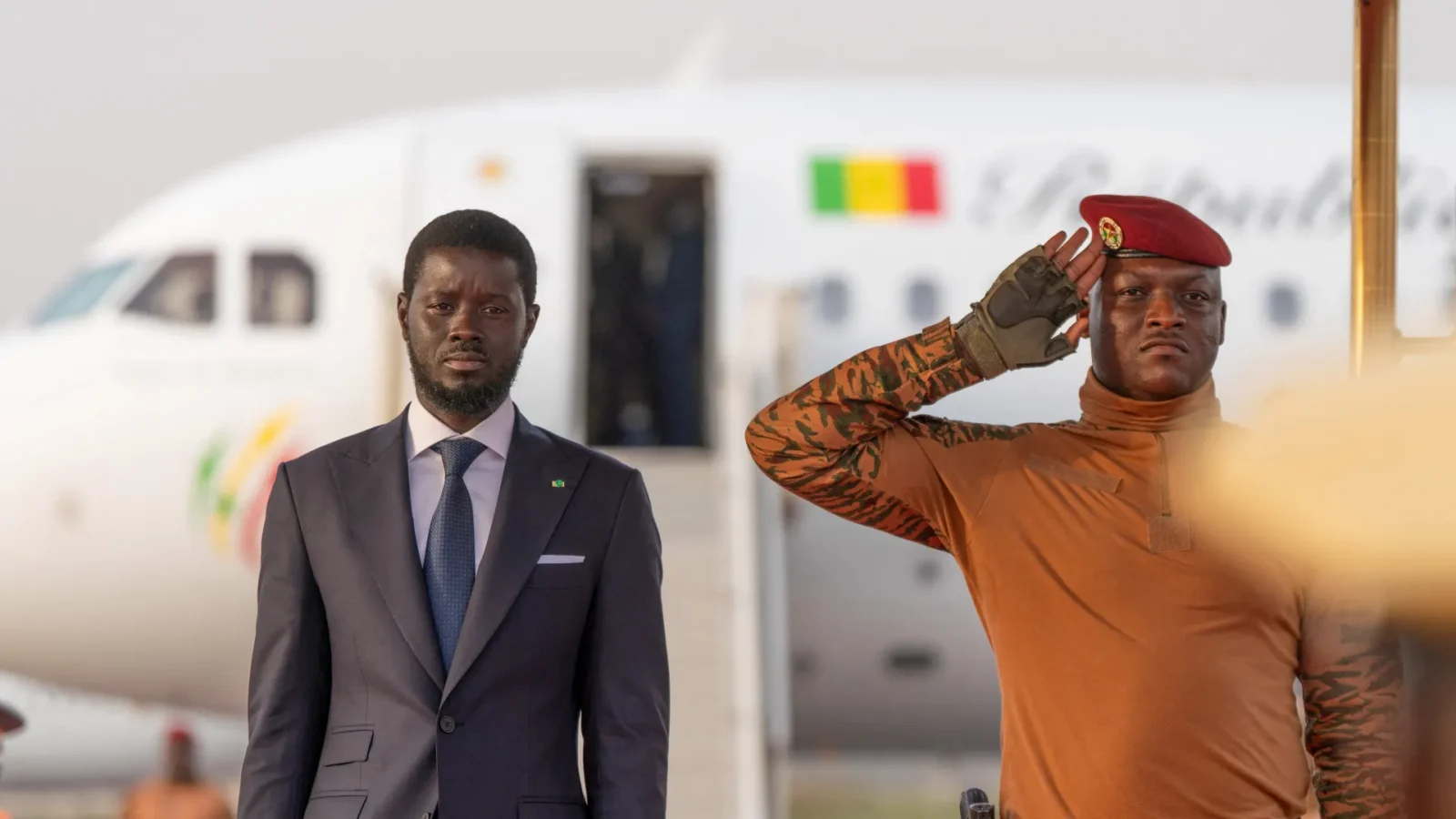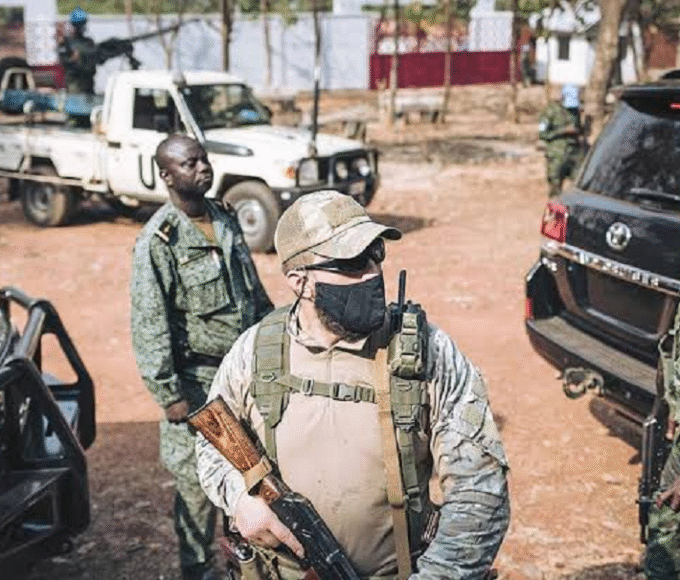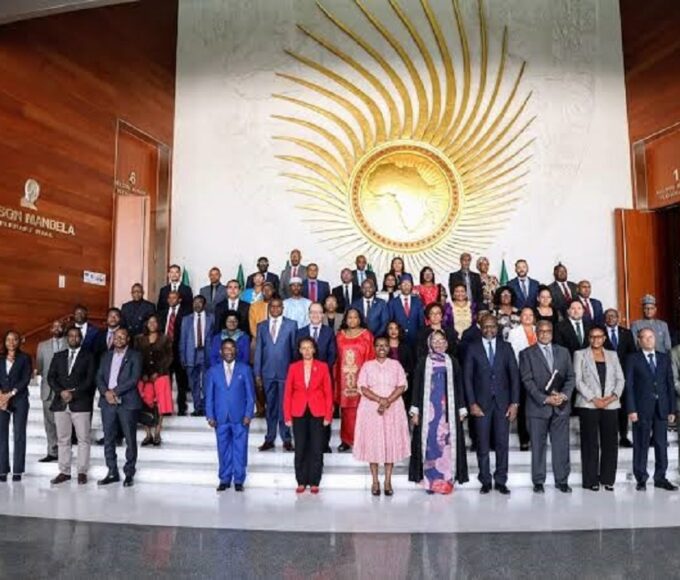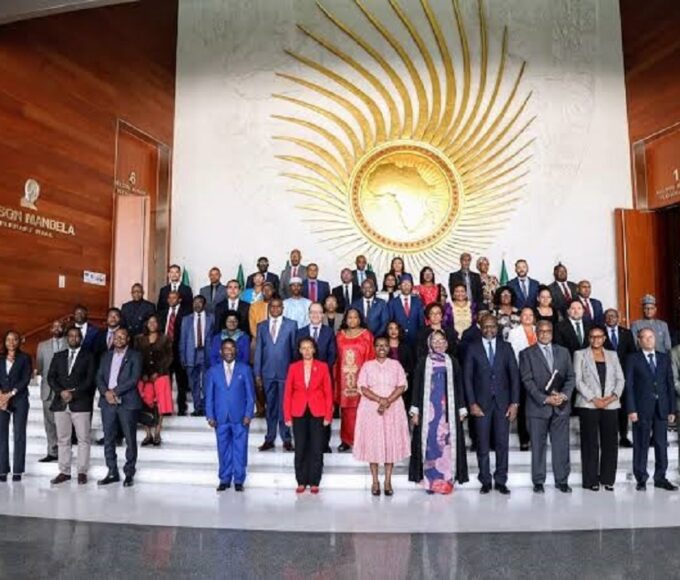Strengthening Security in West Africa: Burkina Faso and Senegal’s New Partnership
Senegal’s embrace of bilateral and regional security mechanisms reflects this evolving landscape, where cooperation among African nations is increasingly seen as the cornerstone of durable peace and stability.

A new bilateral initiative targeting terrorism and transnational crime has been launched by Burkina Faso and Senegal in response to West Africa’s growing insecurity. This partnership reflects an increasing consensus among Sahelian nations that regional threats require collective, coordinated action.
A United Front Against Shared Threats
Although Burkina Faso and Senegal do not share a border, their security concerns are deeply intertwined. Both face rising threats from violent extremism, arms trafficking, and cross-border insurgencies—issues magnified by state fragility and the wider instability engulfing the Sahel region.
In Ouagadougou, Prime Minister Ousmane Sonko of Senegal revealed a new agreement emphasising better intelligence cooperation and joint operations against cross-border criminal networks.
Pillars of the New Security Agreement
According to a joint communiqué, the agreement commits both countries to deeper cooperation in intelligence exchange, joint operations, and efforts to disrupt the financing and movement of armed groups. The pact underscores the need for African-led responses to terrorism and organised crime while appealing to international partners to support locally driven initiatives.
Crucially, both nations emphasised their commitment to sovereignty and self-determination. “Both parties also welcomed the convergence of views between Their Excellencies Captain Ibrahim Traoré, President of Faso, and Mr Bassirou Diomaye Diakhar Faye, President of Senegal, on respecting state sovereignty and the control of their destinies without foreign interference,” the statement noted.
A Shift Toward Regional Ownership
The new initiative is part of a wider shift in West Africa’s security architecture. Frustrated with the limitations of external interventions and legacy alliances, many countries in the region are now charting a path toward self-reliance. Burkina Faso, along with Mali and Niger, recently formed the Alliance of Sahel States (AES), a 5,000-strong joint military force expected to become operational soon.
Senegal’s embrace of bilateral and regional security mechanisms reflects this evolving landscape, where cooperation among African nations is increasingly seen as the cornerstone of durable peace and stability.

Navigating Complex Challenges
While this agreement is a significant step forward, implementation will not be without obstacles. Persistent insecurity in the Sahel is fueled by structural issues—political volatility, economic hardship, and porous borders—that complicate coordination and resource mobilisation.
Effective cooperation will require sustained trust, efficient intelligence-sharing systems, and adequate logistical and financial support. Moreover, both countries must continue investing in institutional capacity, good governance, and community resilience to address the root causes of insecurity.
Looking Ahead: Toward a Safer, More Sovereign Region
The Burkina Faso–Senegal partnership is emblematic of a broader transformation in West African security thinking—one rooted in sovereignty, solidarity, and strategic autonomy. By taking the lead in confronting shared threats, these nations are laying the groundwork for a more secure and integrated Sahel.
As regional alliances deepen and operationalise, the focus must remain on inclusive, sustainable approaches that empower local institutions and communities. With continued commitment and cooperation, initiatives like this bilateral pact could pave the way for lasting peace and development across the region.
Recent Posts
Categories
- Air & Aerospace17
- Border Security15
- Civil Security6
- Civil Wars4
- Crisis5
- Cyber Security8
- Defense24
- Diplomacy19
- Entrepreneurship1
- Events5
- Global Security Watch6
- Industry8
- Land & Army9
- Leadership & Training5
- Military Aviation7
- Military History27
- Military Speeches1
- More1
- Naval & Maritime9
- Policies1
- Resources2
- Security12
- Special Forces2
- Systems And Technology9
- Tech6
- Uncategorized6
- UNSC1
- Veterans7
- Women in Defence9
Related Articles
RUSSIA’S WAGNER LEGACY IN AFRICA POST-PRIGOZHIN
In the diamond fields of the Central African Republic, Yevgeny Prigozhin’s shadow...
ByKing Richard Igimoh, Group Editor ALOOctober 1, 2025AFRICAN UNION SECURITY SUMMIT CONCLUDES WITH BOLD PLEDGES ON PEACE, REFORM, AND GLOBAL EQUITY
The 38th Ordinary Session of the African Union (AU) Assembly in Addis...
ByKing Richard Igimoh, Group Editor ALOSeptember 29, 2025AFRICAN UNION SECURITY SUMMIT CONCLUDES WITH BOLD PLEDGES ON PEACE, REFORM, AND GLOBAL EQUITY
The 38th Ordinary Session of the African Union (AU) Assembly in Addis...
ByKing Richard Igimoh, Group Editor ALOSeptember 26, 2025General Musa Leads Civil-Military Reset in Nigeria
Under General Musa’s Watch, Nigeria’s Military Reimagines Civil-Military Relations at Landmark...
ByKing Richard Igimoh, Group Editor ALOJune 23, 2025













